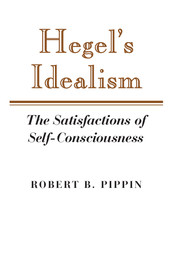3 - Fichte's contribution
Published online by Cambridge University Press: 05 June 2012
Summary
The importance of Fichte for a proper understanding of Hegel's idealism goes beyond the fact that Hegel's all-important appropriation of Kant was everywhere influenced by Fichte's reading of the central issues and unresolved problems in Kant. However much Hegel vigorously dissociated himself from Fichte, from some of his earliest philosophical work in Jena to what may be the most important discussion in the Science of Logic (the rejection of both “external” and “positing” reflection), the Fichtean account of subjectivity would nevertheless remain recognizable in Hegel's later system, as would Fichte's speculative understanding of “thought” as a “selfdetermining activity.”
Hegel's debt to Fichte is, then, quite real and quite complex. The important interpretive issues raised by it are, in the context of this study and the problem noted previously, twofold. First, what is the status of Fichte's interpretation of Kant? More specifically, does Fichte's interpretation of Kant's idealism contribute anything of significance to the issues raised by Kant? Indeed, one must ask, as one must with Hegel, does Fichte even identify such issues properly, in a way relevant to Kant's argument? Not surprisingly, it turns out that Fichte marks the path for Hegel's later interests by insisting on the centrality of Kant's account of apperception for idealism and, having done so, suggests a bold, radical revision of the principle.
- Type
- Chapter
- Information
- Hegel's IdealismThe Satisfactions of Self-Consciousness, pp. 42 - 59Publisher: Cambridge University PressPrint publication year: 1989



